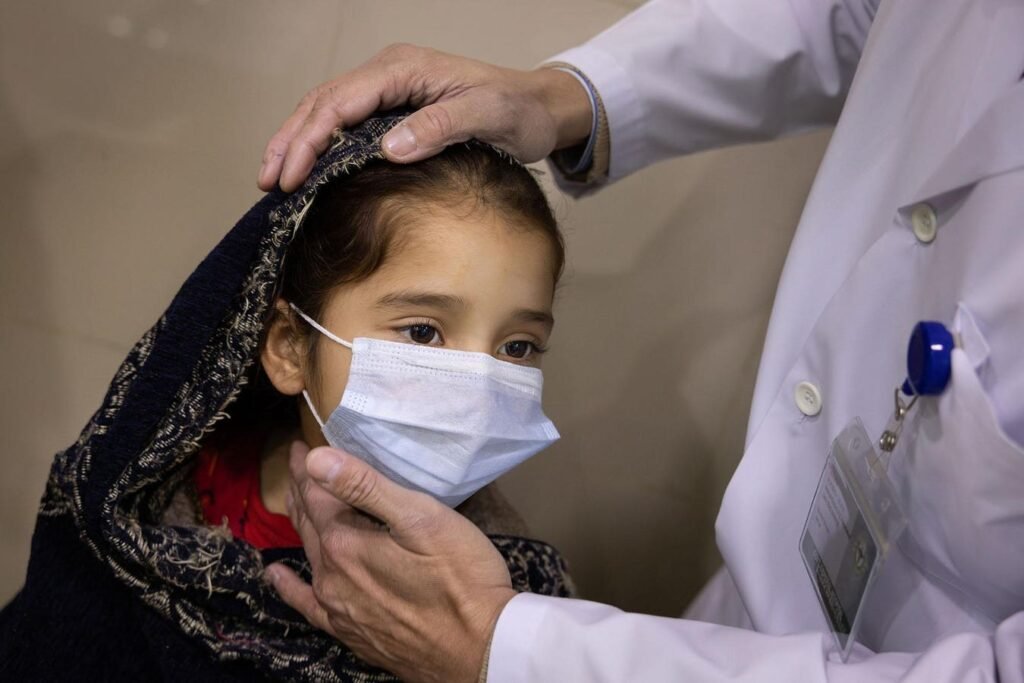8-year-old Asma, a TB patient who nears completion of her treatment, receives consultation at the … More
Tuberculosis (TB) continues to pose a significant global health threat, despite being preventable and curable. In 2023, TB claimed 1.25 million lives worldwide, making it the number one infectious disease killer. The disease, known for its respiratory nature and susceptibility to drug resistance, remains a challenge to global health security.
While progress against TB has rebounded post-COVID-19 disruptions, recent reductions in health development assistance are jeopardizing this momentum. Many highly affected countries are facing funding gaps for essential tests and treatments, raising concerns about sustaining progress in the fight against TB. Any slackening in efforts to combat TB could lead to increased costs and risks.
In 2023, approximately 10.8 million people were diagnosed with TB globally, with new cases on the rise since 2020. The disease’s widespread presence in major cities worldwide highlights its threat in our interconnected world. An untreated individual with active TB can potentially infect 10 to 15 others within a year.
The 1.25 million TB-related deaths in 2023 reflect a fatality rate of nearly 12%, surpassing that of COVID-19. Most of these deaths are preventable, as the majority of TB cases are “drug sensitive” and can be cured with affordable treatment. However, challenges persist in identifying and treating affected individuals, especially within impoverished and marginalized communities.
Furthermore, drug-resistant TB poses a more severe threat, with an estimated 400,000 cases reported in 2023. Treating drug-resistant TB is complex, expensive, and less successful, with only a fraction of affected individuals receiving treatment. The emergence of drug-resistant TB contributes significantly to antimicrobial resistance-related deaths.
Preventing the proliferation of drug-resistant TB is crucial for global health security, as untreated cases can lead to more resistant forms of the disease. TB primarily affects disadvantaged populations, including those living with HIV, refugees, and individuals in poverty, exacerbating health disparities and hindering access to essential services.
Investing in TB prevention and treatment not only addresses the health security aspect but also carries economic benefits by reducing productivity losses and healthcare expenditures. Despite the challenges, recent advancements in TB diagnosis, prevention, and treatment offer hope for improved outcomes.
The commitment of countries to global TB eradication targets, along with innovative solutions and collaborative efforts, is driving progress in the fight against TB. Investments in TB programs are strengthening healthcare systems and improving access to essential resources, leading to increased diagnosis and treatment success rates.
Now is not the time to relent in the battle against TB but to reinforce our dedication to eliminating the disease and safeguarding public health. With the necessary resources and determination, we can save countless lives and secure a healthier future for all.


